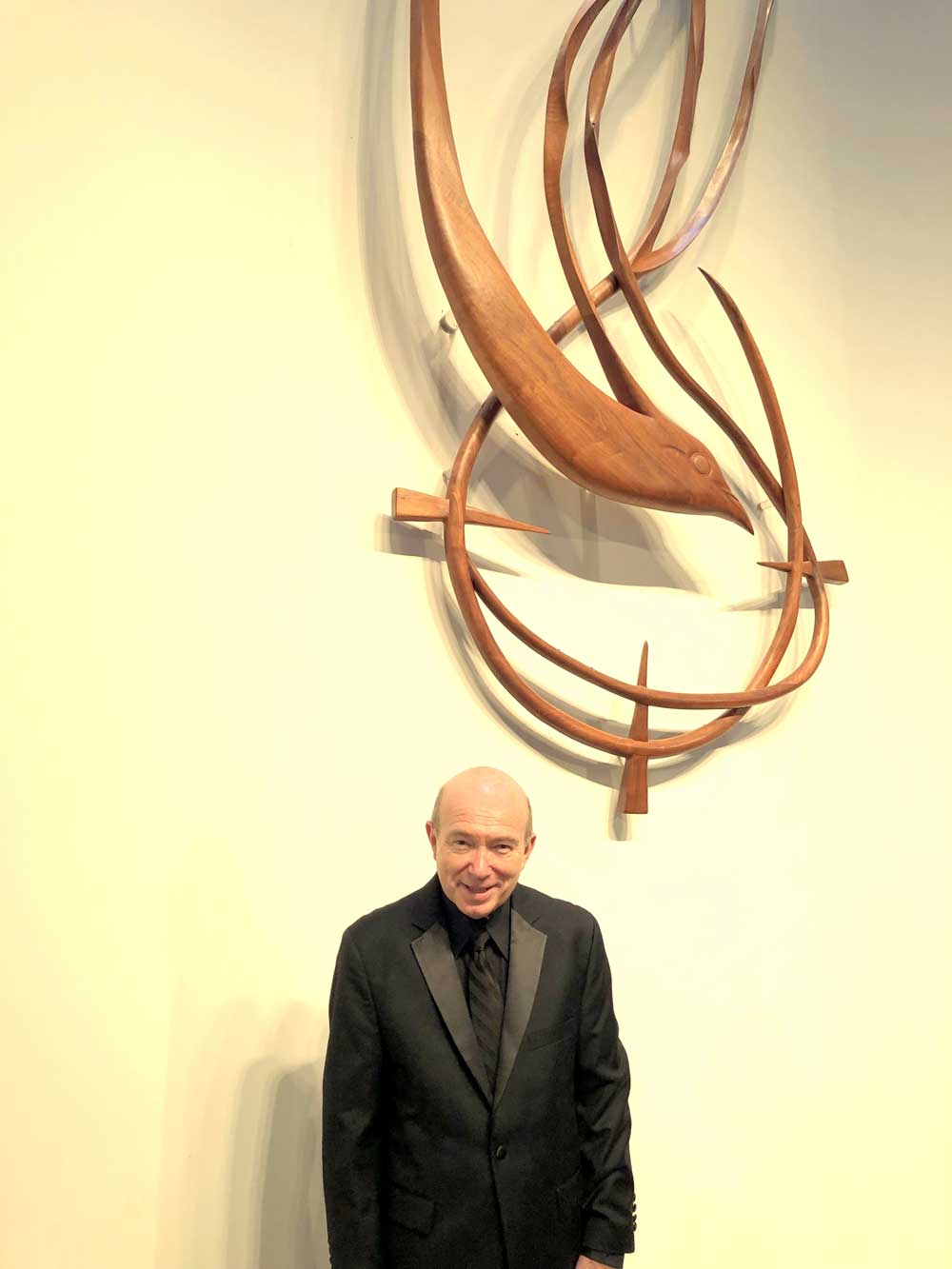
Beethoven’s “Appassionata” Sonata, which one renowned music critic called a “desperate glimpse into Nirvana,” will be performed by internationally acclaimed pianist and Daytona Solisti Artist in Residence Dr. Michael Rickman during a Nov. 20 solo concert.
Rickman, who has performed in London, Paris and Carnegie Hall in New York City, will be in concert at 3:30 p.m. Sunday in the sanctuary of Lighthouse Christ Presbyterian Church, 1035 W. Granada Blvd., Ormond Beach. A $20 donation is requested at the door. For more information call 386-562-5423 or go online at daytonasolisti.com. The performance is part of Daytona Solisti’s 2022-23 concert season.
Along with the lengthy, epic “Appassionata” Sonata, which Beethoven considered to be one of his finest, the program will include a Myra Hess transcription of Bach’s “Jesu, Joy of Man’s Desiring,” the chorale setting from Cantata BWV 147, and Robert Schumann’s Carnaval Op. 9.
Acclaimed German-Jewish musicologist Hugo Leichtentritt, writing in the early 20th century, not only proclaimed the “Appassionata” was a “desperate glimpse into Nirvana,” but also compared the sonata, especially its last movement, to Dante’s harrowing “Inferno.” One YouTube video of a performance of the “Appasssionata” is accompanied by a visual of Francisco Goya’s chilling painting “Saturn Devouring His Son.”
Renowned British musicologist Sir Donald Francis Tovey likened the work (technically known as Sonata in F Minor, Op. 57) to Shakespeare’s tragedy “King Lear.” German musicologist Arnold Schering compared it to Shakespeare’s “Macbeth.” Beethoven himself suggested listeners would better understand his sonata by reading Shakespeare’s “The Tempest.” That may explain why so many music critics ever since have described the three-movement, 25-minute work, written in 1804-1805, as “tempestuous.”
Perhaps the turmoil evident in the “Appassionata,” which was given that name by a music publisher after Beethoven’s death in 1827, is best understood when one realizes the work was composed as Beethoven realized he was becoming deaf.
Rickman’s program also will include Bach’s “Jesu, Joy of Man’s Desiring,” a work which began life in the mid-1600s as a hymn featuring a melody by Johann Schop. In 1723, Bach adapted the hymn for orchestral use in his church cantata “Heart and Mouth and Deed and Life.” In 1926, English pianist Myra Hess transcribed “Jesu, Joy of Man’s Desiring” for solo piano, one of innumerable such transcriptions of one of Bach’s most selectively beloved works. The cantata itself is seldom heard in full.
Rickman also will perform Carnaval, Op. 9, written in 1834-1835 by German composer Robert Schumann. Schumann also titled the work “Cute scenes on four notes”–21 little pieces, some less than a minute long, only the last, and longest, exceeding 3 minutes, all representing scenes from a masked ball and the games of Pierrot, Arlequin, Coquette and the rest of them.
Here’s how Schumann himself described it: ““Just a few words about the composition, which owes its existence to a coincidence. The name of the small town where a musical acquaintance of mine lived was made up purely of letters in the musical scale, all of which are in my name; that was the provenance of one of those ingenious games that have been known since Bach first used the idea. I finished one piece after the other just at Carnaval time in 1835, although my mood and my own situation were serious. I gave the pieces titles later
and called the collection ‘Carnaval’. While certain pieces may charm some people, the moods change too fast for an entire audience to follow without being startled every few minutes.”
Rickman is an internationally acclaimed pianist and Steinway Artist (an honor bestowed by the renowned piano maker). The German newspaper Badische Zeitung-Freiburg described him as “brilliant at the keyboard,” noting he “played not as a technician, but as a musician, who lived the performance with both body and soul.” New York Times critic Bernard Holland hailed Rickman as “a sure and steady pianist.”
Along with Carnegie Hall, Rickman has performed in Alice Tully Hall at New York’s Lincoln Center for the Performing Arts, as well as at venues in London, Paris, Toronto, Chile, Latvia and across the United States. He retired from Stetson University in April 2017 after 34 years as professor of piano at the DeLand school, where he has been named Professor Emeritus.
Violinist Susan Pitard Acree founded Daytona Solisti in 2005 soon after she moved to the Daytona area from Atlanta. She previously played violin in the Atlanta Symphony Orchestra for 22 years. Each year Daytona Solisti presents a concert series featuring performances by the Daytona Solisti Chamber Orchestra, the Rickman-Acree-Corporon Piano Trio, and solo performances by Rickman. The ensembles are composed of professional musicians from throughout Central Florida and Northeast Florida, with core members residing locally.
Daytona Solisti is in residence again this concert season at Lighthouse Christ Presbyterian Church in Ormond Beach, which will host all of the ensemble’s concerts.





























Leave a Reply